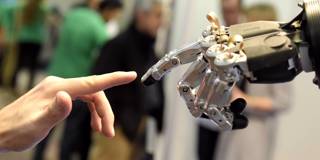Current academic research – into the impact of new technologies, the economics of innovation, and the quality of management, for example – may be providing ever more pieces of the puzzle. But many crucial questions about economic progress remain unanswered, and others have not yet even been properly posed.
CAMBRIDGE – Do we know how economies develop? Obviously not, it seems, or otherwise every country would be doing better than it currently is in these low-growth times. In fact, cases of sustained rapid growth, like Japan beginning in the 1960s, or other Southeast Asian countries a decade later, are so rare that they are often described as “economic miracles.”
Yet when Patrick Collison of software infrastructure company Stripe and Tyler Cowen of George Mason University recently wrote an article in The Atlantic calling for a bold new interdisciplinary “science of progress,” they stirred up a flurry of righteous indignation among academics.
Many pointed to the vast amount of academic and applied research that already addresses what Collison and Cowen propose to include in a new discipline of “Progress Studies.” Today, armies of economists are researching issues such as what explains the location of technology clusters like Silicon Valley, why the Industrial Revolution happened when it did, or why some organizations are much more productive and innovative than others. As the University of Oxford’s Gina Neff recently remarked on Twitter, the Industrial Revolution even gave birth to sociology, or what she called “Progress Studies 1.0.”

CAMBRIDGE – Do we know how economies develop? Obviously not, it seems, or otherwise every country would be doing better than it currently is in these low-growth times. In fact, cases of sustained rapid growth, like Japan beginning in the 1960s, or other Southeast Asian countries a decade later, are so rare that they are often described as “economic miracles.”
Yet when Patrick Collison of software infrastructure company Stripe and Tyler Cowen of George Mason University recently wrote an article in The Atlantic calling for a bold new interdisciplinary “science of progress,” they stirred up a flurry of righteous indignation among academics.
Many pointed to the vast amount of academic and applied research that already addresses what Collison and Cowen propose to include in a new discipline of “Progress Studies.” Today, armies of economists are researching issues such as what explains the location of technology clusters like Silicon Valley, why the Industrial Revolution happened when it did, or why some organizations are much more productive and innovative than others. As the University of Oxford’s Gina Neff recently remarked on Twitter, the Industrial Revolution even gave birth to sociology, or what she called “Progress Studies 1.0.”